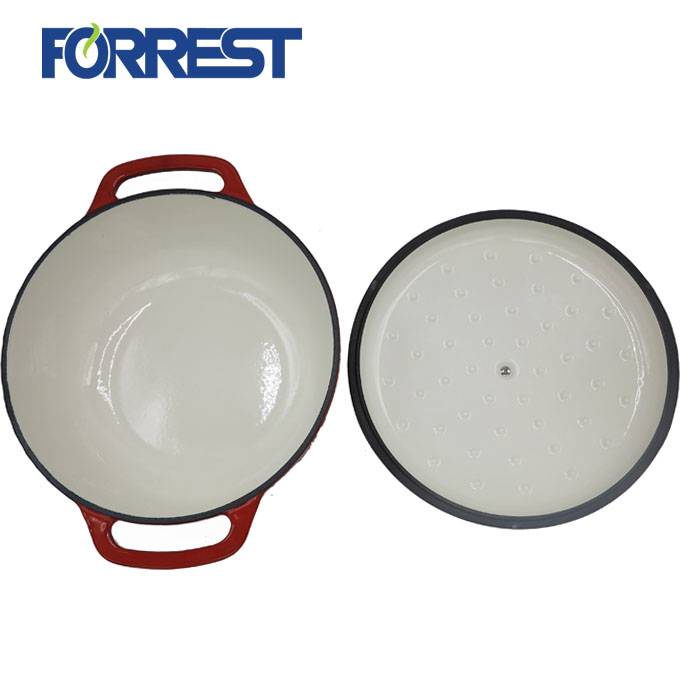Don't worry, it's easy to do.
If you've been putting off washing your tea kettle for weeks (er, months), taking a peek inside may be a scary experience. Especially if you have hard water, you may discover layer upon layer of limescale. And if you've let water sit in your tea kettle for days on end, don't be surprised if you end up seeing a little rust start to form. The good news is, even if you've neglected this chore for a little too long, it's never too late to learn how to clean a tea kettle the right way. Fortunately, the process, detailed below, is as easy as brewing a cup of tea. Seasoned Cast Iron Skillet

Ideally, we'd all start by following the regular hand-washing directions after each time we use our tea kettles. But when rust and mineral deposits are already taking over, it's time to try the deep-cleaning methods below, including the lemon and baking soda trick spotted on Williams Sonoma. Bonus: it doesn't require any harsh chemicals.
RELATED: How to Clean a Keurig: The One Trick That Makes It Easy
1. For everyday cleaning: Wash the tea kettle with mild dishwashing soap and hot water, then rinse thoroughly, and dry to prevent rust from forming. If you have a tea kettle with an enamel finish, avoid using steel wool or any abrasive scrubber that could scratch the surface.
2. For descaling: If mineral deposits have built up in your kettle, add 1/4 cup white vinegar and 2 cups water to the kettle, then simmer for 20 minutes.
3. For a deep clean: If you're dealing with both mineral deposits and rust stains, combine 2 tablespoons baking soda, 2 tablespoons lemon juice, and water in the kettle. Boil for 30 minutes, making sure that there's always water in the kettle. Let cool, then rinse thoroughly and dry.
4. To remove grease on the outside of the kettle: If the exterior of your tea kettle is enamel or stainless steel, mix together baking soda and white vinegar to form a paste, then use it to scrub away grease and grime. To clean a copper tea kettle, cut a lemon in half, dip it in salt, then use it to rub the surface of the kettle. Rinse thoroughly and dry.

Cast Iron Bbq Grill Tip: To prevent rust and mineral deposits from forming in the first place, don't let water sit in the kettle overnight.